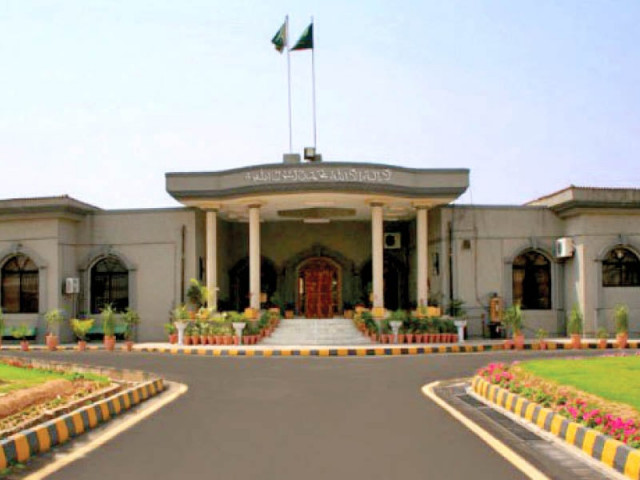Child abuse case: Top court questions actions of two sessions judges
Wants to know why suspected judge was granted ‘relief’; IHC told to determine where trial should be held

PHOTO: EXPRESS
The apex court has also directed the Islamabad High Court to decide where the trial of the case should be conducted.
Chief Justice of Pakistan Justice Mian Saqib Nisar, while hearing the suo moto notice of the torture of a child employed as a maid at the house of an Islamabad judge, allowed parents of the child to meet her at the Pakistan Sweet Homes.
The child has been living at the orphanage ever since the court exercised parental jurisdiction in the case.
“When father fails then court becomes parent,” the CJP remarked while exercising parental jurisdiction and acting as parents of the child maid in the case. The court, however, directed that the girl cannot be handed over to her parents at this stage.
Additional District & Sessions Judge (ADSJ) Raja Khurram Ali Khan and his wife, Maheen Zafar, had been booked for torturing their 10-year-old maid. But ADSJ Muhammad Atta Rabbani, ADSJ Raja Asif Mehmood and a lawyer, Raja Zahoorul Hassan, made sure the two were cleared of the charges on January 3.
On January 3, Judge Rabbani had handed over custody of the juvenile housemaid, as noted by SC in the past, in a ‘hasty manner’.
Judge Mehmood had approved the compromise between the parties after lawyer Hassan with an uncle of the girl identifying her parents as guardians. On the same day, Judge Mehmood had granted pre-arrest bail to Maheen while accusing the police of mala fide intentions in the case.
Later, Judge Mehmood also granted interim bail to Judge Khurram, who was made OSD by the IHC in line with the findings of an inquiry earlier conducted, till February 1.
Once the Supreme Court took suo moto notice, it voiced serious concerns at the loopholes in the ‘compromise’.
On Tuesday, the three-member bench noted that the decision of handing over the minor in a rush was not as per the law as Judge Rabbani overlooked the order of an assistant commissioner, who had ordered to send the child to the crisis centre.
The bench further noted that it wants to examine the grounds on which Judge Mehmood granted bail to the judge’s wife.
Meanwhile, the police informed the court that a charge sheet would be submitted before the concerned trial court today.
Subsequently, the SC directed the IHC to decide where the trial of the case should be conducted once the charge sheet is submitted.
The step is aimed at making the trial fair and impartial as previously the counsel for the rights activists, Asma Jahangir, said that the trial should not be conducted in the district courts of Islamabad keeping in view the history of the case.
On January 11, it transpired before the top court that the lawyer who allegedly penned affidavits granting pardon ‘in the name of God’ to the judge and his wife was a relative of the suspects.
Tayyaba’s father, Muhammad Azam also confessed before the apex court that he was unaware of any ‘compromise’ with the judge and his wife, was ‘illiterate’ and was assured by his lawyer that the family would get the child’s custody only after they ‘affixed a thumb impression’ on the affidavits.
Following the hearing, the case was adjourned for two weeks.
Published in The Express Tribune, February 1st, 2017.



















COMMENTS
Comments are moderated and generally will be posted if they are on-topic and not abusive.
For more information, please see our Comments FAQ